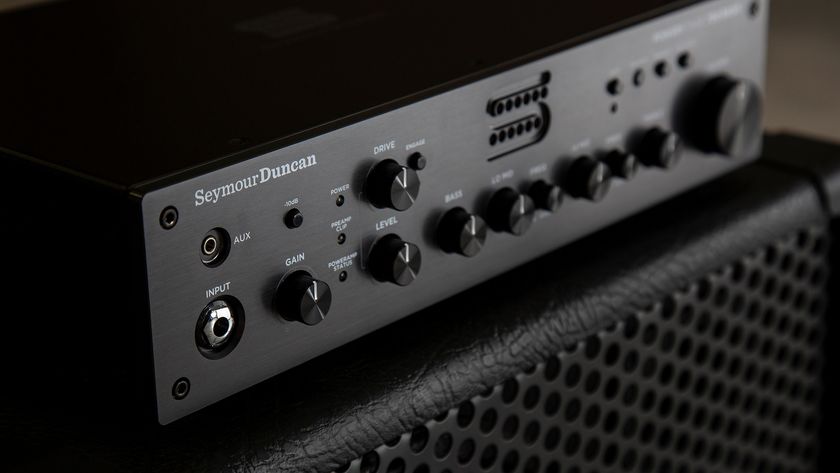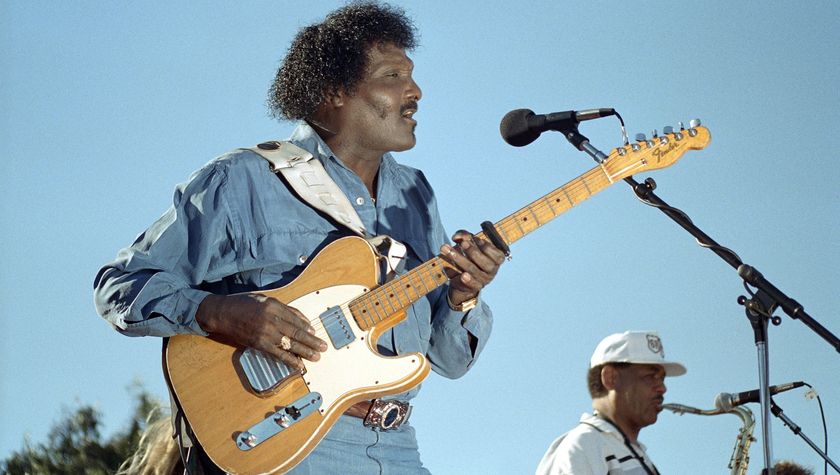Skeletonwitch Guitarists Nate Garnette and Scott Hedrick Talk New Album, 'Devouring Radiant Light'
“It’s definitely the best representation of the entire band that we’ve ever done.” Skeletonwitch discuss how they battled years of turmoil and re-emerged with their brilliant, expansive new album.
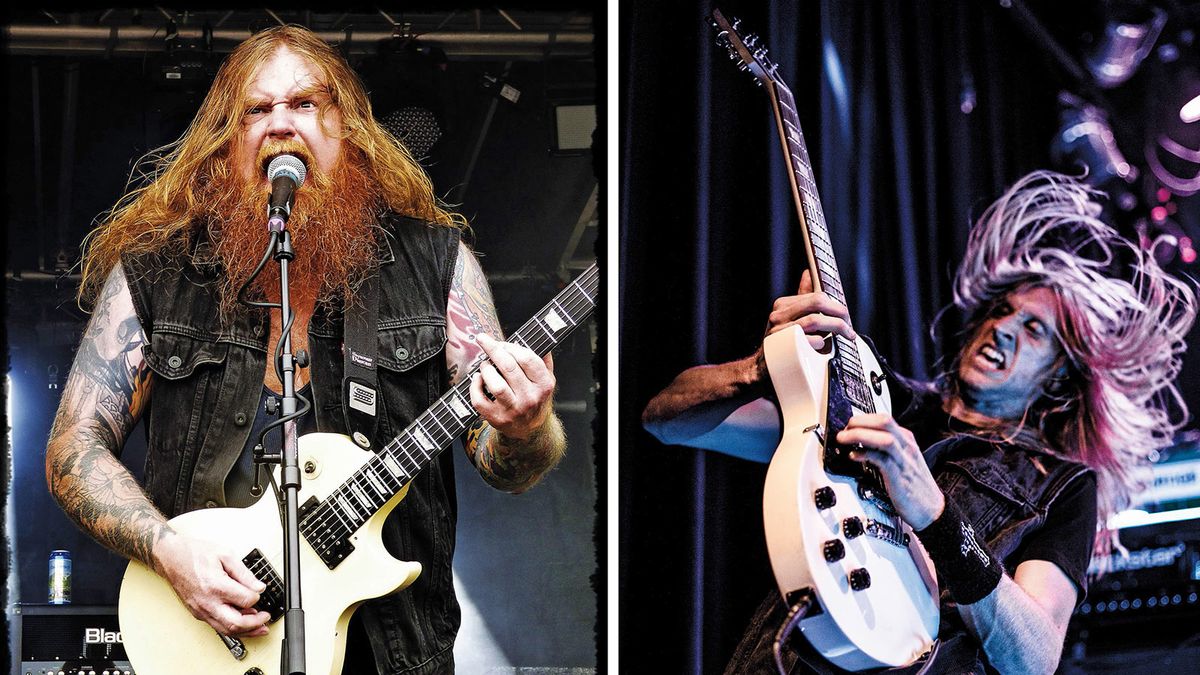
Following a 10-year-plus slog that began with gigs at nightclubs and evolved to middle slots at mid-sized venues and numerous appearances at European summer festivals, shockingly, the members of Athens, Ohio-based powerhouse metal band Skeletonwitch nearly ground to an abrupt halt.
In late 2014, vocalist Chance Garnette, brother of guitarist Nate, was arrested and charged with “assault and battery on a family/household member” and promptly fired, leaving the history of the group uncertain. Scrambling to finish the shows they had already scheduled, Skeletonwitch hired their friend Andy Horn of Battlemaster to fill in. Once they were off tour, founding guitarists Nate Garnette and Scott Hedrick struggled to decide whether it was time to bury Skeletonwitch.
“We seriously thought about it,” Nate says. “Chance is my brother and we’re close, so it was the hardest thing I’ve ever faced in this band. But, even though I was real upset by what had happened, I didn’t want to just break up after we'd done so much.”
To prove to their fans there was still fresh life in their old bones, Skeletonwitch hired Wolvhammer vocalist Adam Clemans (ex-Veil of Maya) and hammered out the The Apothic Gloom EP. As much as this move was an effort to regain their equilibrium, it turned out to be a golden opportunity for Scott. Nate was Skeletonwitch’s primary songwriter from their 2004 debut, At One with the Shadows, through the band’s unrelenting fifth full-length, 2015’s Serpents Unleashed. Shaken up by his brother’s personal problems, Nate wasn’t inspired to write, so Scott stepped in and penned three of the four songs on the EP, taking a new and divergent approach, including atmospheric segues and even acoustic guitar interludes.
The EP served as a bridge between Serpents Unleashed and Skeletonwitch’s multifaceted new album, Devouring Radiant Light. While the new album still includes sledgehammer riffs that vary in intensity from Painkiller-era Judas Priest to the more aggressive offerings of Goatwhore, Devouring Radiant Light is far more expansive than any of Skeletonwitch’s other albums. Rather than featuring three-minute-long songs, the new record averages between five and seven minutes per track and contrasts bludgeoning rhythms with far more textural playing. The main riff of “Fen of Shadows” pummels like a heavyweight boxer, yet each stanza ends with an infectious three-note hook. Elsewhere, the title track starts with layered undistorted guitar and builds into a juxtaposition of blasting unmuted chords and a web of individually picked notes.
“It’s definitely the best representation of the entire band that we’ve ever done,” Nate says. “And I have to admit, a lot of the reason there’s different songwriting is because I didn’t do it.”
That’s not totally true. Nate did write three of the heaviest songs on Devouring Radiant Light, but having enjoyed his enhanced role on Apothic Gloom, Scott planted his heels and took on the lion’s share of the writing for Devouring — and he pushed the boundaries of the Skeletonwitch sound out to the limit.
Get The Pick Newsletter
All the latest guitar news, interviews, lessons, reviews, deals and more, direct to your inbox!
“On past albums, whenever I had an idea to maybe write something different instead of just doing the kind of slamming songs we were playing, I’d always get negative feedback,” Scott says. “I’d suggest something and Chance would say, ‘This isn’t right. This isn’t what Skeletonwitch should sound like.’ So I just thought, ‘Well, Nate is a just a better songwriter than I am. I guess I’m just not that good.’ Then I realized that wasn’t the case.”
To prepare himself to write Devouring Radiant Light, Scott underwent an extensive regimen comparable to training for a triathlon. First, he broke up with his girlfriend of seven years — a move he said was a long time coming — then he started getting in shape, both mentally and physically, in order to focus himself to take on such a challenge. He’d wake at 5:30 a.m., write music for six or seven hours and then go on a 10-mile run.
“I started spending a lot more time on myself to improve who I was as a musician and a person,” he says. “At first, I had all this self-doubt about making this kind of a record. Then it dawned on me that, much like most creative types, whether you’re a painter or dancer, you aren’t just born that way. So whenever I doubted myself and thought, ‘I can’t do this,’ I was like, ‘No, motherfucker, put in the time and work. Dig in and see what you can do.’ So I made a concerted effort to focus on all kinds of creativity. When I ran, I listened to other music — jazz, classical, ambient, whatever — and when I wasn’t writing I made edits in my head or took notes on my cell phone and then came home and made the necessary changes.”
While Scott took on the main songwriting role for Devouring Radiant Light, he left it to Nate to track all the rhythm parts when the band entered GodCity Studio in Salem, Massachusetts, with Converge guitarist and producer de rigueur Kurt Ballou. To make the process easier, Scott tabbed out all his parts for Nate.
“Even for songs I wrote, he’s such a better, more consistent, cleaner guitar player than I am,” Scott says. “I’m totally happy to admit that, for us sloppy guitar players out there, everywhere. I guess I’m more of a composer than a rhythm player. That’s why I play the leads — you don’t have to be so rigid. You can try different things and it usually doesn’t matter if something’s not exactly right.”
Both Nate and Scott plug Les Paul Studio guitars into Blackstar Series One 100-watt amps. Nate routes straight through his amp while Scott uses various effects to enhance his leads. And unlike many of their contemporaries, Skeletonwitch play everything in standard A-440 tuning.
“Not that there’s anything wrong with tuning down, but some people use it to create a false heaviness,” Nate explains. “I’ve always said riffs are heavy, tuning isn’t.”
And to make sure he can play as hard as he wants without worrying about going out of tune or breaking a string, Nate uses GHS GBTNT Boomers.
“Having those bigger low strings is great for all the fast and intricate picking we do,” says Nate. “It really makes it easy to dig in and not feel like it’s loose. They’re tight as shit, so you can get as crazy as you want. And when we’re up there playing, I tend to lose my mind and just go for it.”
Jon is an author, journalist, and podcaster who recently wrote and hosted the first 12-episode season of the acclaimed Backstaged: The Devil in Metal, an exclusive from Diversion Podcasts/iHeart. He is also the primary author of the popular Louder Than Hell: The Definitive Oral History of Metal and the sole author of Raising Hell: Backstage Tales From the Lives of Metal Legends. In addition, he co-wrote I'm the Man: The Story of That Guy From Anthrax (with Scott Ian), Ministry: The Lost Gospels According to Al Jourgensen (with Al Jourgensen), and My Riot: Agnostic Front, Grit, Guts & Glory (with Roger Miret). Wiederhorn has worked on staff as an associate editor for Rolling Stone, Executive Editor of Guitar Magazine, and senior writer for MTV News. His work has also appeared in Spin, Entertainment Weekly, Yahoo.com, Revolver, Inked, Loudwire.com and other publications and websites.
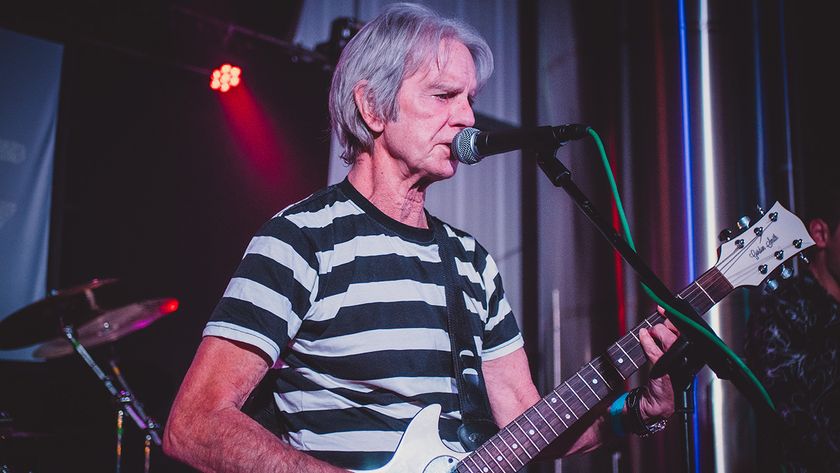
“I get asked, ‘What’s it like being a one-hit wonder?’ I say, ‘It’s better than being a no-hit wonder!’” The Vapors’ hit Turning Japanese was born at 4AM, but came to life when two guitarists were stuck into the same booth
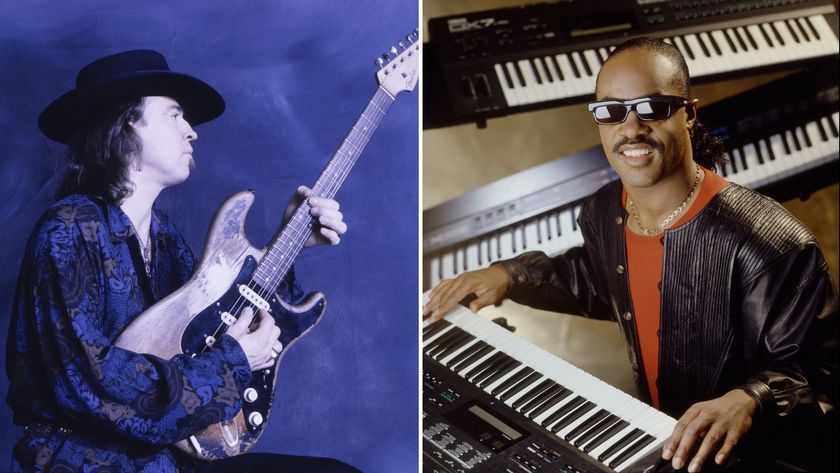
“Let's play... you start it off now, Stevie”: That time Stevie Wonder jammed with Stevie Ray Vaughan... and played SRV's number one Strat

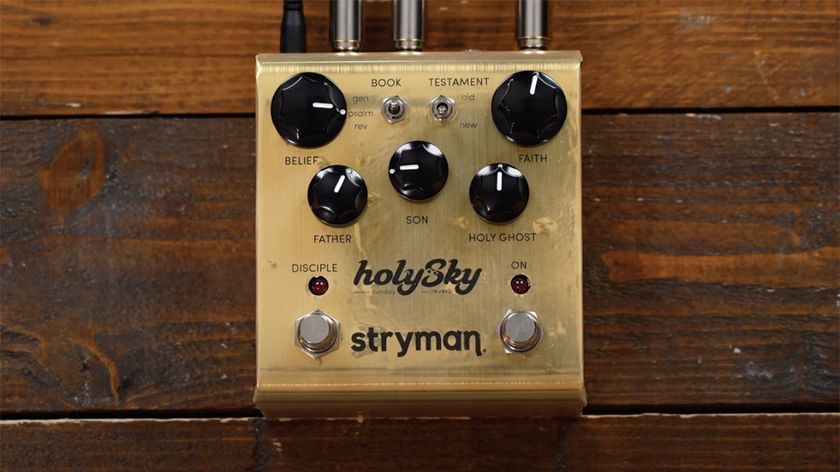
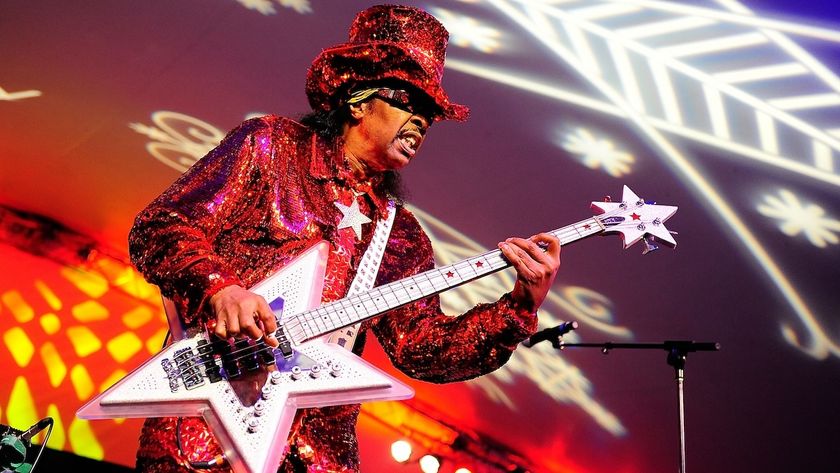
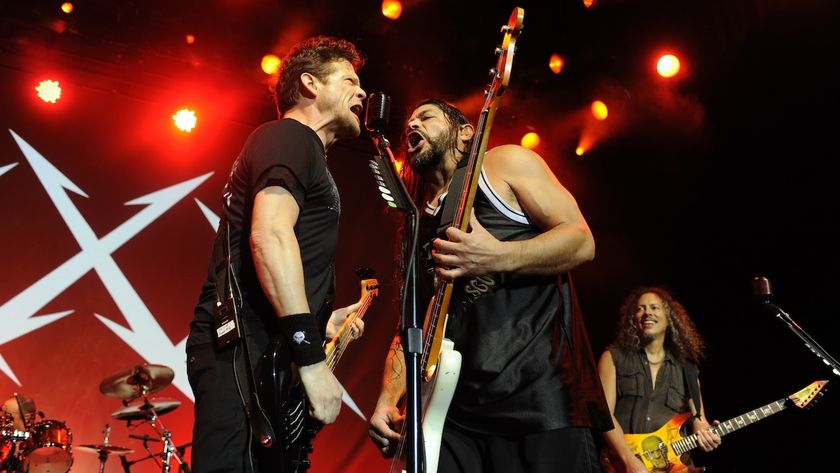
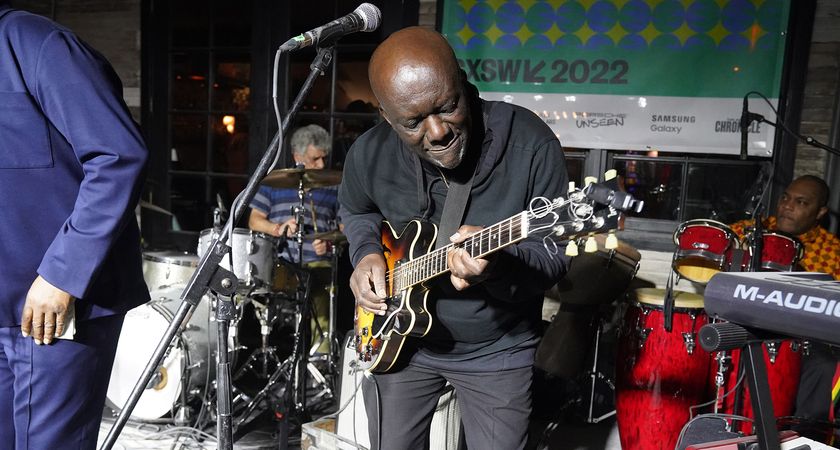
![[L-R] George Harrison, Aashish Khan and John Barham collaborate in the studio](https://cdn.mos.cms.futurecdn.net/VANJajEM56nLiJATg4P5Po-840-80.jpg)
